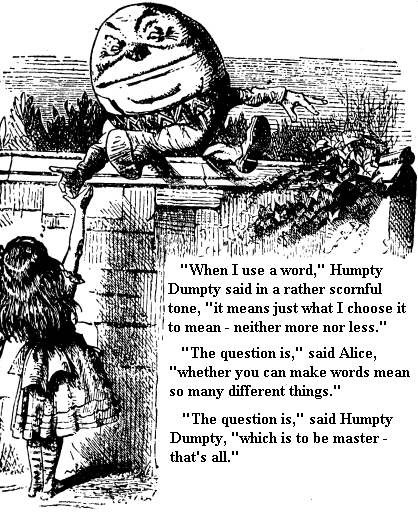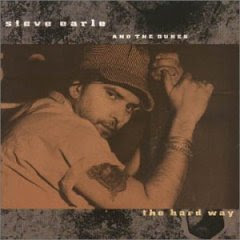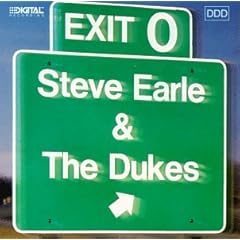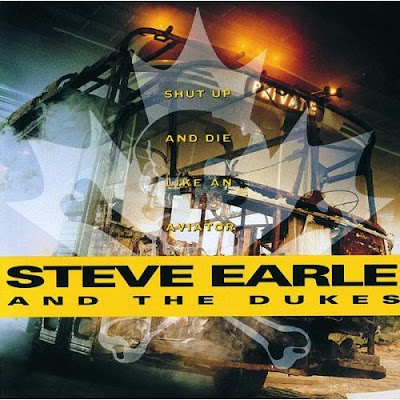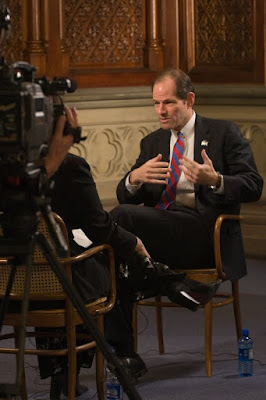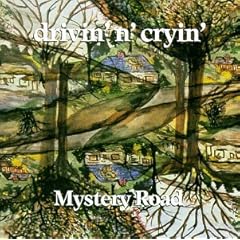 Album
Album: Steve Earle,
Copperhead Road, 1988
Acquired: I got this for Christmas in 1988. Santa bought it at a Music Man on December 2 of that year. Just as well that the album was purchased. I've heard Santa's rythm section just can't handle the time changes like they used to.
Best Track: "Johnny Come Lately"
Lasting Memory: It seemed like every time I returned to Virginia Tech between 1990 and 1997, I would hear "Copperhead Road" blasting from my car's radio on WROV , "The Rock of Virginia," which broadcast from Roanoke. Even though the song is rockin', it is without a doubt a country song, even a bluegrass or Irish folk song. The station had "Copperhead Road" in regular rotation, though, because the song tells the lived history of millions of Appalachians.
Here're the video and the lyrics for the song:
Well my name's John Lee Pettimore
Same as my daddy and his daddy before
You hardly ever saw Grandaddy down here
He only came to town about twice a year
He'd buy a hundred pounds of yeast and some copper line
Everybody knew that he made moonshine
Now the revenue man wanted Grandaddy bad
He headed up the holler with everything he had
It's before my time but I've been told
He never came back from Copperhead Road
Now Daddy ran the whiskey in a big block Dodge
Bought it at an auction at the Mason's Lodge
Johnson County Sheriff painted on the side
Just shot a coat of primer then he looked inside
Well him and my uncle tore that engine down
I still remember that rumblin' sound
Well the sheriff came around in the middle of the night
Heard mama cryin', knew something wasn't right
He was headed down to Knoxville with the weekly load
You could smell the whiskey burnin' down Copperhead Road
I volunteered for the Army on my birthday
They draft the white trash first, 'round here anyway
I done two tours of duty in Vietnam
And I came home with a brand new plan
I take the seed from Colombia and Mexico
I plant it up the holler down Copperhead Road
Well the D.E.A.'s got a chopper in the air
I wake up screaming like I'm back over there
I learned a thing or two from ol' Charlie don't you know
You better stay away from Copperhead Road
Identity music,
like identity politics, plays well but almost never solves anything. (See what I did there with linking to WROV's link to vdeo of Obama's race and politics speech? Damn, I'm good.)
Earle fully embraces his redneck (née Scotch-Irish) heritage on the first side of
Copperhead Road. I've never read now-Sen. Jim Webb's history of the Scotch-Irish in America,
Born Fighting, but Earle could be a case study in that tome. Born in Fort Monroe, Va., into a family with Kentucky roots that had settled in Texas and scattered West and East during the Depression and World War II, Earle went back to Texas as a teen and took up a guitar in his effort to beat the world, instead of the handgun so many of the character's in his songs choose, like in
Copperhead Road's "Devil's Right Hand."
And Earle went all the way back to the source for his music and his worldview on this album, recording "
Johnny Come Lately" with The Pogues. (Couldn't find a Steve Earle version that was full and free.)
The problem for the rednecks in Earle's songs, and in the real world, is that the identity and the lifestyle it perpetuates -- self-defeating doubt about one's actual worth ("Snake Oil"), self-defeating drinking ("Back to the Wall"), and a tendency to cling desperately to the first and seemingly only means of salvation (all of the love songs on the second side of
Copperhead Road but especially "Waiting on You")--offer little in the way of comfort, success, or even hope.
In this week of St. Patirck's Day, Obama's excellent speech, and Easter, which is the single most definitional day on the Western calendar (in or out you Jews, Muslims, Hindus, and contemplatives! In. Or. Out.), it was good to relisten to
Copperhead Road and give all of this a thinking through.
The conclusion I came to this morning is that when it comes to the struggle of between the races, Spike Jones and the City Slickers got it more right than anybody else all the way back in the 1940s.
Beetlebaum wins.
Up Next: Steve Earle and the Dukes,
The Hard Way, 1990
P.S. If I was of English or Scottish descent, I'd be more than a little upset that the world ignored St. George's Day or St. Andrew's Day. Those are, respectively, April 23 and November 30, if you're include to begin a couple of new drinking traditions. And if you do take up St. George's Day, you can get to be (pick one) Catalonian, English, Georgian, Serbian, Herzegovinian, Macedonian, or Bulgarian for a day. The dragonslayer is the patron saint of all those regions and countries.
